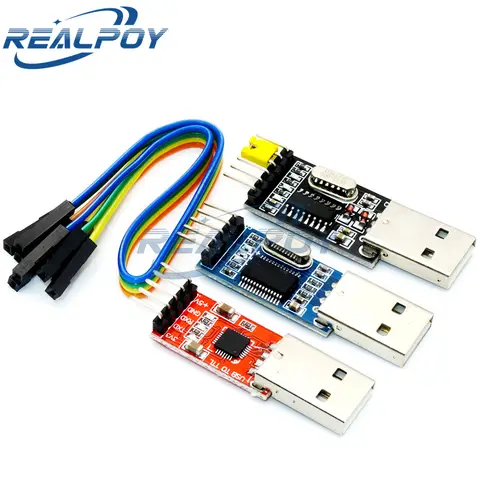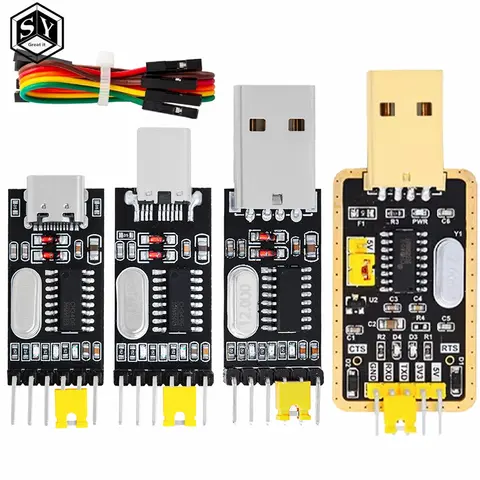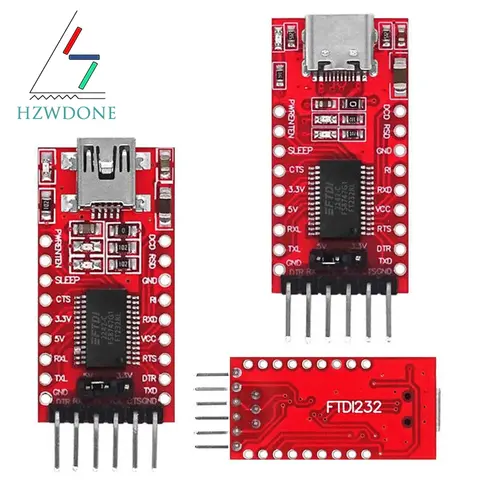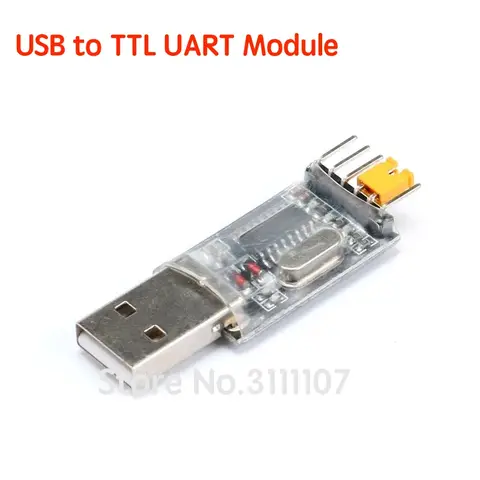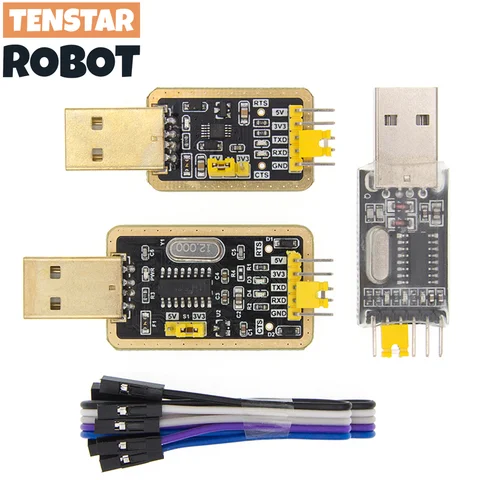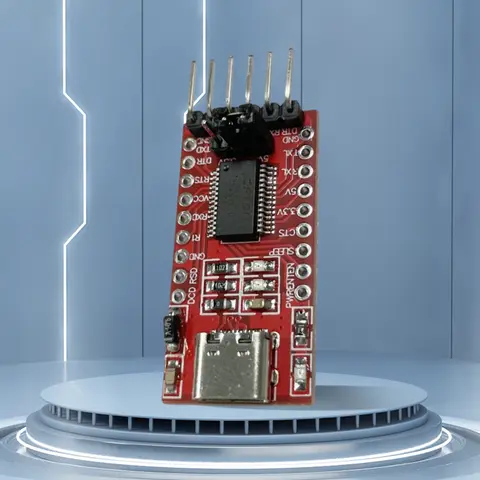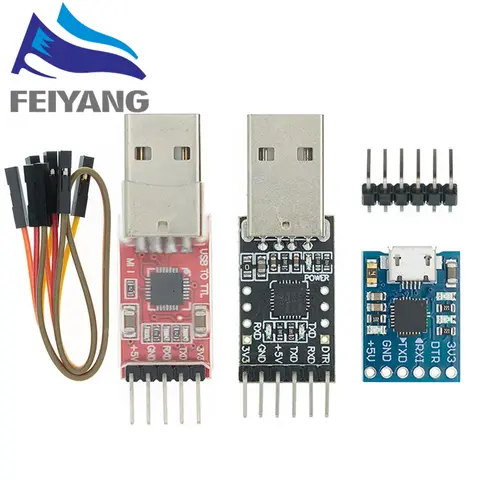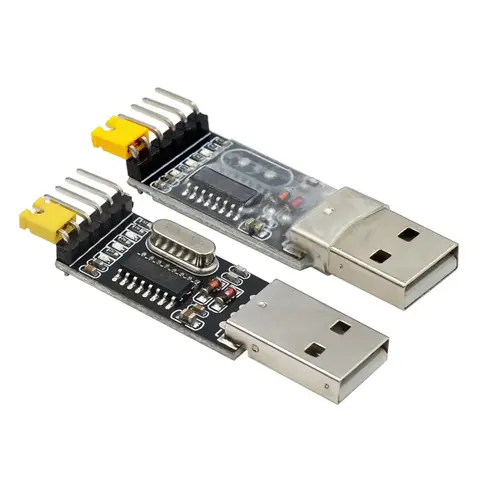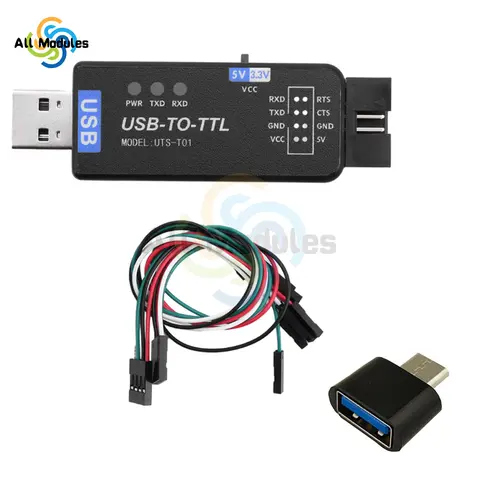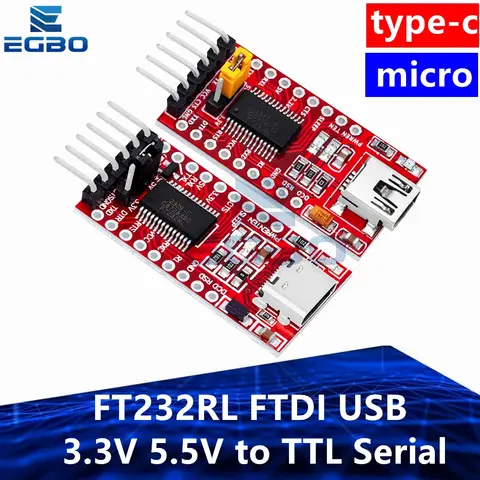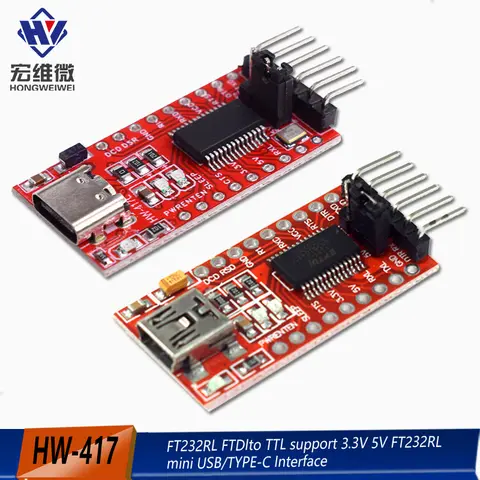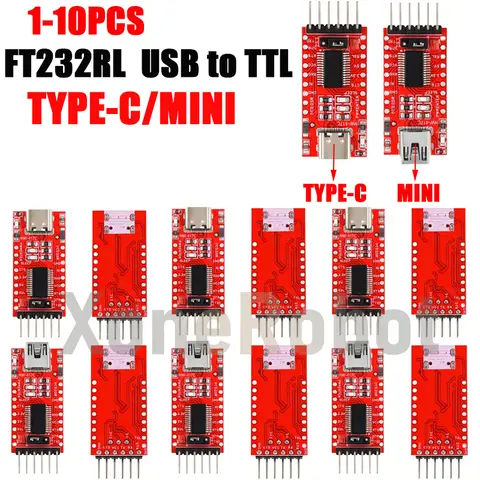
Related Searches
4.7
Results for usb ttl
Discover the power of USB TTL for seamless communication and control in your electronics projects. Whether you're a hobbyist, an engineer, or a maker, the USB TTL interface is your go-to tool for bridging the gap between your computer and various electronic devices. This versatile device allows you to communicate directly with microcontrollers, development boards, and other hardware without the need for additional software or complex setup processes.
With USB TTL, you can easily program, debug, and monitor your projects on-the-go. Its compact design and straightforward implementation make it a preferred choice for those who demand reliability and ease of use. Whether you are working on a home automation system, a robotics project, or even a simple IoT device, USB TTL offers the precision and efficiency you need.
The key to any successful electronics project lies in the communication link between your hardware and software. USB TTL excels in this aspect, offering a high-speed data transfer rate that ensures your devices operate at their optimal performance. It supports a wide range of data rates, making it suitable for both low and high-speed applications. Furthermore, its compatibility with popular operating systems such as Windows, macOS, and Linux means you can work across multiple platforms without any issues.
One of the standout features of USB TTL is its low-cost and affordability. Unlike some other communication interfaces, USB TTL doesn't require expensive hardware or special tools. It is an ideal solution for budget-conscious projects without compromising on performance or functionality. The user-friendly interface and intuitive design make it accessible to beginners while still offering advanced features for experienced users.
Another benefit of USB TTL is its flexibility. It can be used with a variety of microcontrollers, including Arduino, Raspberry Pi, ESP32, and more. This compatibility opens up a world of possibilities for your projects, allowing you to choose the right microcontroller for your specific needs. Whether you're interfacing with sensors, actuators, or other peripherals, USB TTL ensures smooth and reliable communication.
In conclusion, the USB TTL interface is a game-changer for anyone involved in electronics projects. Its simplicity, reliability, and affordability make it a must-have tool in your arsenal. Whether you're working on a complex system or a simple device, USB TTL provides the connection you need to bring your ideas to life. Invest in USB TTL and elevate your projects to the next level.
Ultra-Bargain Usb Ttl Serial Port Breakout Board For Arduino Projects!
In today’s digital age, the need for efficient and reliable communication between hardware and software has never been more critical. USB TTL (Transistor-Transistor Logic) adapters play a pivotal role in this ecosystem, providing a seamless connection between microcontrollers, development boards, and computers. These adapters are essential tools for developers, engineers, hobbyists, and students who work with microcontrollers, enabling them to program and test their projects with ease.
What is USB TTL?
A USB TTL adapter is a hardware component that bridges the gap between a USB port and a microcontroller’s serial interface. It converts the digital signals from the USB port to TTL (Transistor-Transistor Logic) levels, allowing for bi-directional communication. This conversion is crucial because the serial interface on most microcontrollers operates at lower voltage levels, typically between 0V and 3.3V, whereas a standard USB port operates at 5V.
The Benefits of USB TTL
Easy Setup and Use
USB TTL adapters are known for their simplicity and ease of use. They typically plug directly into a USB port and connect to the microcontroller via a serial interface. The setup process is straightforward, requiring minimal technical expertise. Users can start programming and testing their projects without the need for complex configurations.
Cost-Effective
Compared to other communication interfaces like serial ports or FTDI chips, USB TTL adapters are more cost-effective. They offer a balance between functionality and price, making them an ideal choice for budget-conscious users.
Compatibility with Multiple Microcontrollers
One of the key advantages of USB TTL adapters is their compatibility with a wide range of microcontrollers. Whether you are working with Arduino, Raspberry Pi, ESP32, or any other microcontroller, a USB TTL adapter can provide the necessary communication bridge. This versatility makes it a valuable tool for diverse projects and applications.
High Reliability and Durability
USB TTL adapters are designed to withstand the rigors of frequent use. They are made from high-quality materials and are resistant to wear and tear, ensuring reliable performance over time. This reliability is particularly important for long-term projects and professional applications.
Small Size and Portability
These adapters are compact and lightweight, making them easy to carry around. Their small form factor does not interfere with the workspace, whether you are working at a desk or in a smaller development environment.
Fast Data Transfer
USB TTL adapters provide fast data transfer rates, which is essential for complex projects that require real-time communication between hardware and software. This speed ensures that developers can test and debug their projects efficiently, without waiting for slow data transfer.
How USB TTL Adapters Work
USB TTL adapters operate by converting the data signals from the USB port to TTL levels, which are compatible with the microcontroller’s serial interface. The adapter typically includes a USB host controller and a serial interface, such as RS-232, which is responsible for the communication between the two.
Components of a USB TTL Adapter
- USB Host Controller: This component handles the communication with the USB port, managing data transfer and power management.
- Serial Interface: The serial interface converts the data signals to TTL levels and vice versa, ensuring proper communication with the microcontroller.
- Voltage Conversion: The adapter includes a voltage level converter that ensures the data signals are compatible with the microcontroller’s operating voltage.
USB TTL vs. FTDI Chips
While both USB TTL adapters and FTDI chips can be used for serial communication, there are some key differences that make USB TTL adapters a preferred choice for many users.
FTDI Chips
FTDI (Future Technology Devices International) chips are widely used in serial communication due to their robustness and reliability. They provide a level of performance and stability that is difficult to match with cheaper alternatives. However, FTDI chips can be more expensive and may require additional configuration and setup.
USB TTL Adapters
USB TTL adapters offer a more cost-effective alternative to FTDI chips. They provide similar functionality but at a lower cost, making them ideal for hobbyists and budget-conscious users. While they may not offer the same level of performance as FTDI chips, they still provide reliable and efficient communication, especially for basic and intermediate projects.
Applications of USB TTL Adapters
USB TTL adapters are versatile and find applications in a wide range of fields, including:
- IoT Projects: Many IoT devices require reliable communication between microcontrollers and computers. USB TTL adapters enable seamless data transfer, making them ideal for IoT projects.
- Robotics: In robotics, real-time communication is crucial for controlling motors, sensors, and other components. USB TTL adapters provide the necessary connectivity for these applications.
- Educational Use: USB TTL adapters are commonly used in educational settings to teach students about microcontroller programming and serial communication.
- Industrial Automation: In industrial settings, reliable communication between hardware and software is essential for automation and control systems. USB TTL adapters ensure robust and efficient communication.
- Embedded Systems Development: For developers working on embedded systems, USB TTL adapters provide a straightforward and cost-effective solution for programming and testing.
Choosing the Right USB TTL Adapter
Selecting the right USB TTL adapter depends on your specific needs and the microcontroller you are working with. Here are some factors to consider:
- Microcontroller Compatibility: Ensure the adapter is compatible with the microcontroller you are using. Most USB TTL adapters support a wide range of microcontrollers, but it’s always a good idea to double-check.
- Data Transfer Rate: Look for an adapter with a fast data transfer rate, especially if you are working with complex projects that require real-time communication.
- Voltage Levels: Make sure the adapter supports the voltage levels of your microcontroller. Most USB TTL adapters support 3.3V and 5V levels, but some may have limitations.
- Build Quality: Opt for a high-quality adapter with a durable build. This will ensure reliable performance over time.
- Price: Consider your budget when choosing an adapter. While cost is a factor, it’s important to balance it with the quality and features of the adapter.
Conclusion
USB TTL adapters are essential tools for anyone working with microcontrollers, providing a reliable and efficient way to connect hardware and software. Their ease of use, cost-effectiveness, and compatibility with a wide range of microcontrollers make them a valuable asset for developers, hobbyists, and students. Whether you are working on IoT projects, robotics, educational activities, or industrial automation, a USB TTL adapter can simplify your development process and enhance your project outcomes.
Investing in a high-quality USB TTL adapter can save you time and hassle, allowing you to focus on the creative aspects of your projects. With their robust performance and versatility, these adapters are sure to become an indispensable part of your development toolkit.
See more details about usb ttl in AliExpress Video Page.
